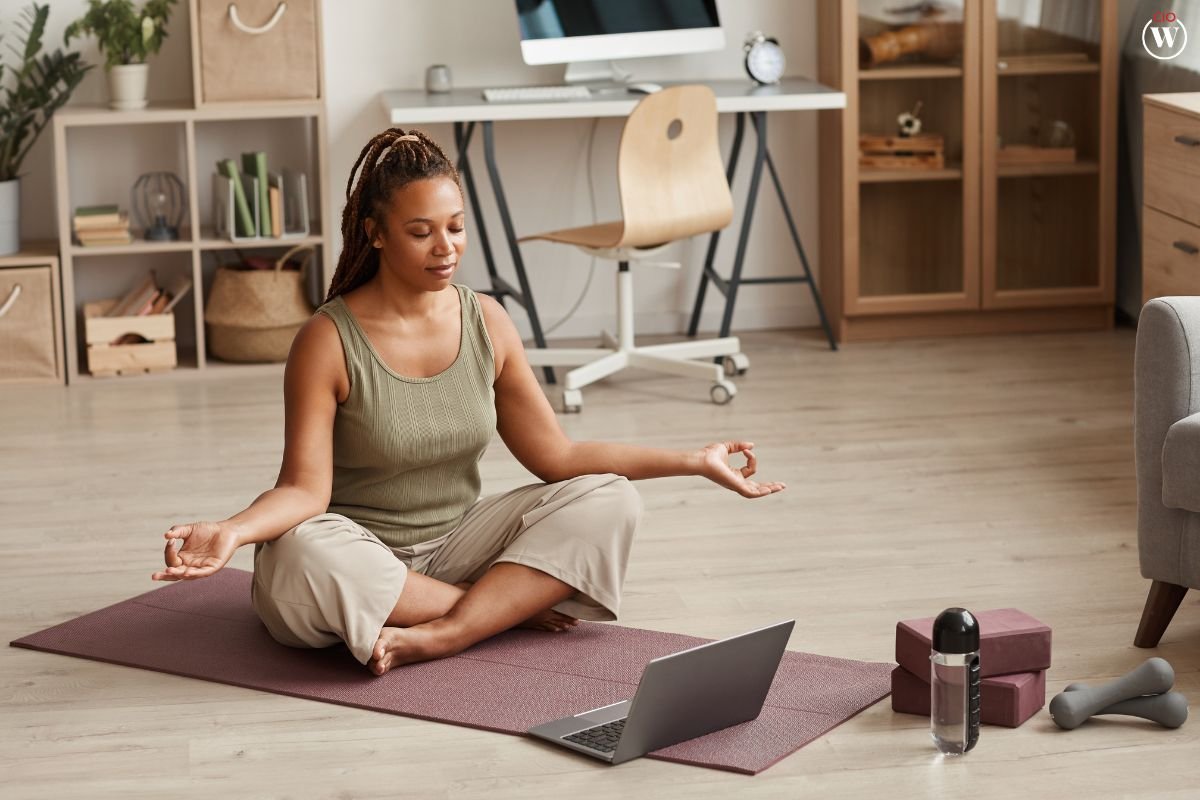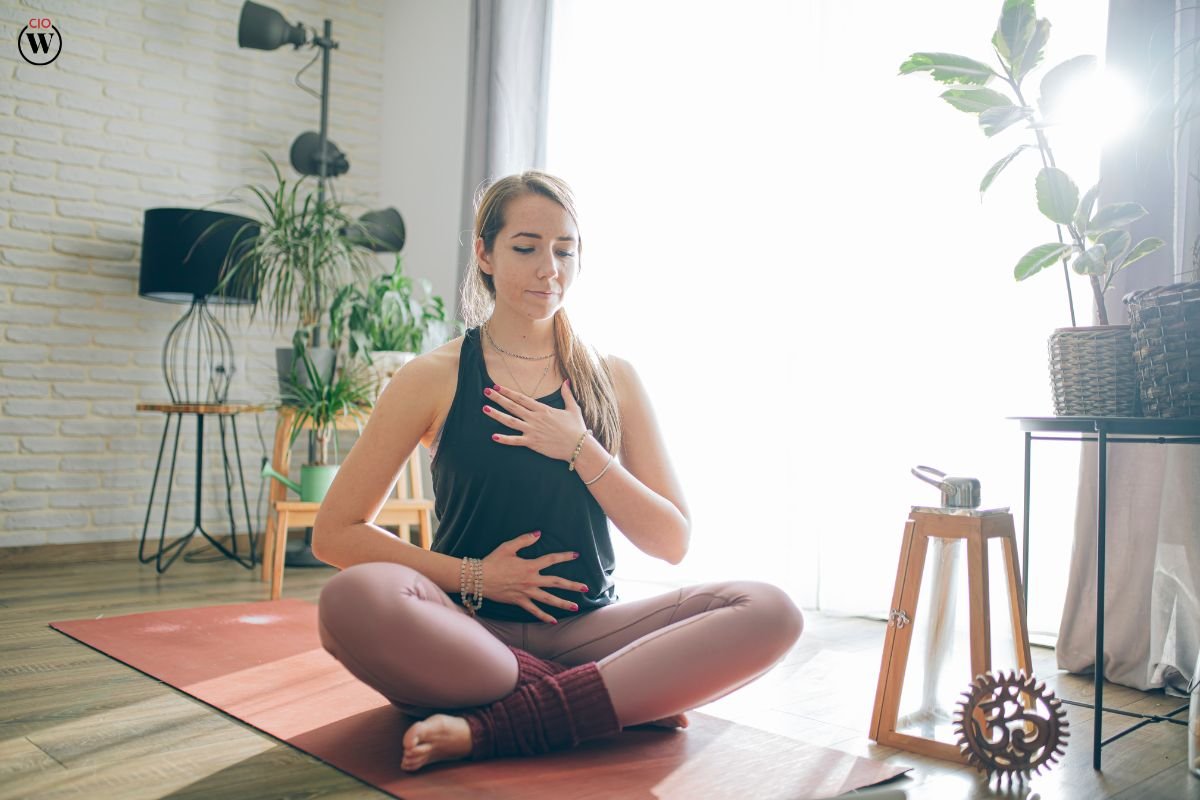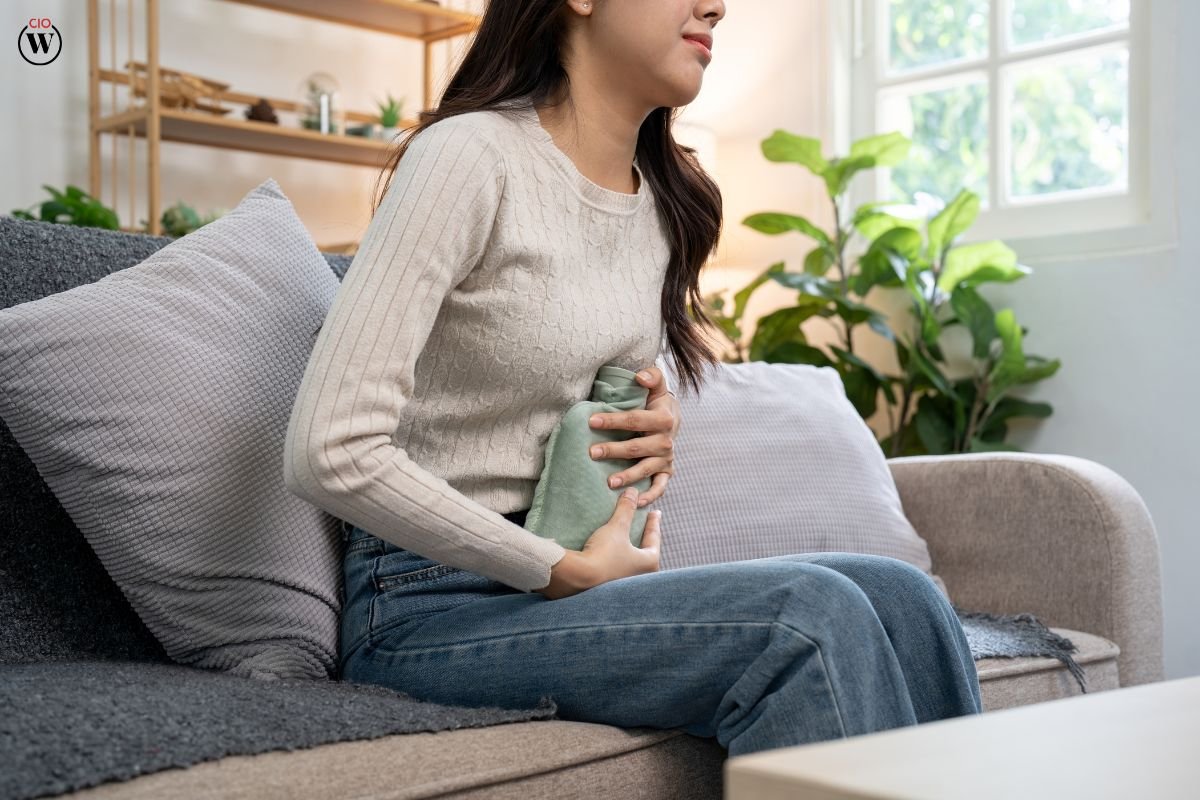Menstrual cramps, or dysmenorrhea, can be tough during your monthly cycle. While medication is a common choice for relief, there are also effective home remedies that offer natural and holistic solutions. Here’s a closer look at ten home remedies for menstrual cramps you can try.
Here are 10 effective home remedies for menstrual cramps:
1. Warm Compress
A warm compress is one of the simplest and most soothing home remedies for menstrual cramps. Applying heat to your lower abdomen helps relax the uterine muscles, which can reduce the intensity of cramping. Heat works by increasing blood flow to the affected area, helping to alleviate pain.
How to Use: You can use a heating pad, hot water bottle, or even a warm towel. Apply the compress to your lower abdomen for 15-20 minutes. If you don’t have a heating pad, a warm bath can also provide relief by relaxing your muscles and easing tension. Be cautious not to use excessive heat, and always ensure there is a barrier (like a cloth) between your skin and the heat source to avoid burns.
2. Ginger Tea
Ginger has been used for centuries in traditional medicine for its anti-inflammatory and pain-relieving properties. It can be particularly effective as one of the home remedies for menstrual cramps due to its ability to reduce inflammation and relieve nausea.
How to Use: To make ginger tea, slice a fresh piece of ginger root and steep it in boiling water for about 5-10 minutes. Strain the ginger and drink the tea. You can sweeten it with honey if desired. Drinking ginger tea two to three times a day during your period can help manage pain and discomfort. For added benefits, combine ginger with turmeric or cinnamon, which also have anti-inflammatory properties.
3. Exercise
Engaging in light exercise can be surprisingly effective for managing menstrual cramps. Physical activity increases endorphin levels in your body, which act as natural painkillers. Additionally, exercise improves blood circulation, which can help alleviate cramps.

How to Use: Activities such as walking, gentle yoga, or stretching can be particularly beneficial. For example, yoga poses like the child’s pose, cat-cow stretch, and forward bend can help relax the abdominal muscles and reduce cramping. Aim for at least 30 minutes of moderate exercise, but listen to your body and adjust based on how you feel.
4. Essential Oils
Essential oils like lavender, peppermint, and eucalyptus can be effective home remedies for menstrual cramps due to their analgesic and anti-inflammatory properties. These oils can help relax your muscles and reduce pain.
How to Use: Mix a few drops of essential oil with a carrier oil (such as coconut or almond oil) and gently massage it onto your lower abdomen. For additional relief, you can also use essential oils in a warm bath. Add a few drops of your chosen oil to the bathwater and soak for about 15-20 minutes. Always perform a patch test before applying essential oils to your skin to ensure you don’t have an allergic reaction.
5. Hydration
Staying hydrated is crucial for overall health and can be particularly effective in managing menstrual cramps. Proper hydration helps prevent bloating and supports overall bodily functions.
How to Use: Incorporate foods rich in omega-3 fatty acids, such as salmon, flaxseeds, and walnuts, into your diet to help reduce inflammation. Magnesium-rich foods like spinach, bananas, and dark chocolate can help relax muscles. Additionally, reducing your intake of caffeine, sugary foods, and high-sodium snacks can help prevent bloating and discomfort. Eating a balanced diet with plenty of fruits, vegetables, and whole grains supports overall well-being and can be part of effective home remedies for menstrual cramps.
6. Dietary Adjustments
Your diet plays a significant role in how you experience menstrual cramps. Certain foods can help reduce inflammation and alleviate pain, while others can worsen symptoms.

How to Use: Incorporate foods rich in omega-3 fatty acids, such as salmon, flaxseeds, and walnuts, into your diet to help reduce inflammation. Magnesium-rich foods like spinach, bananas, and dark chocolate can help relax muscles. Additionally, reducing your intake of caffeine, sugary foods, and high-sodium snacks can help prevent bloating and discomfort. Eating a balanced diet with plenty of fruits, vegetables, and whole grains supports overall well-being and can aid in home remedies for menstrual cramps.
7. Magnesium Supplements
Magnesium is a mineral that helps regulate muscle function and can be an effective remedy for menstrual cramps. It helps relax uterine muscles and reduces the severity of cramps.
How to Use: You can take magnesium supplements according to the dosage recommended by your healthcare provider. Alternatively, increase your intake of magnesium-rich foods like almonds, pumpkin seeds, and avocados. Magnesium supplements should be used with caution and under medical supervision, especially if you have any pre-existing health conditions. These steps can also be considered as home remedies for menstrual cramps, offering a natural approach to managing discomfort.
8. Apple Cider Vinegar
Apple cider vinegar is known for its numerous health benefits, including its ability to help with menstrual cramps. It is believed to help balance hormones and reduce inflammation.
How to Use: For home remedies for menstrual cramps, mix one to two tablespoons of apple cider vinegar with a glass of water and drink it. You can also use apple cider vinegar in salad dressings or incorporate it into your daily routine. Consuming apple cider vinegar regularly during your period can help alleviate cramps and improve overall comfort.
9. Acupuncture
Acupuncture, an ancient practice rooted in traditional Chinese medicine, can be an effective alternative for managing menstrual cramps. It involves inserting thin needles into specific points on the body to balance energy flow and reduce pain.
How to Use: If you’re interested in acupuncture as one of your home remedies for menstrual cramps, seek out a licensed acupuncturist who has experience with menstrual cramps. Treatments can be tailored to your specific needs, and regular sessions may help alleviate pain and improve your overall menstrual health.
10. Relaxation Techniques
Stress can intensify menstrual cramps, making relaxation techniques an essential part of your home remedies for menstrual cramps. Techniques such as deep breathing, meditation, and progressive muscle relaxation can help manage stress and reduce cramping.

How to Use: Practice deep breathing exercises by inhaling deeply through your nose, holding the breath for a few seconds, and exhaling slowly through your mouth. Meditation for a few minutes each day can calm the mind and reduce stress levels. Progressive muscle relaxation, which involves tensing and then slowly relaxing each muscle group, can help relieve tension. Incorporating these practices into your daily routine can help manage menstrual cramps and serve as effective home remedies for menstrual cramps, improving overall well-being.
When to Seek Medical Advice
While these home remedies for menstrual cramps can provide significant relief, it’s important to consult with a healthcare professional if you experience severe or persistent pain. Conditions such as endometriosis, fibroids, or pelvic inflammatory disease could be underlying causes of intense menstrual cramps and may require specialized treatment.
Conclusion
You don’t always need medication to manage menstrual cramps. Try these ten home remedies for menstrual cramps to find natural relief and better comfort during your period. Using warm compresses, changing your diet, or practicing relaxation techniques might help you find what works best for you. Pay attention to how your body responds, and don’t hesitate to seek medical advice if needed to keep your menstrual health in check.









